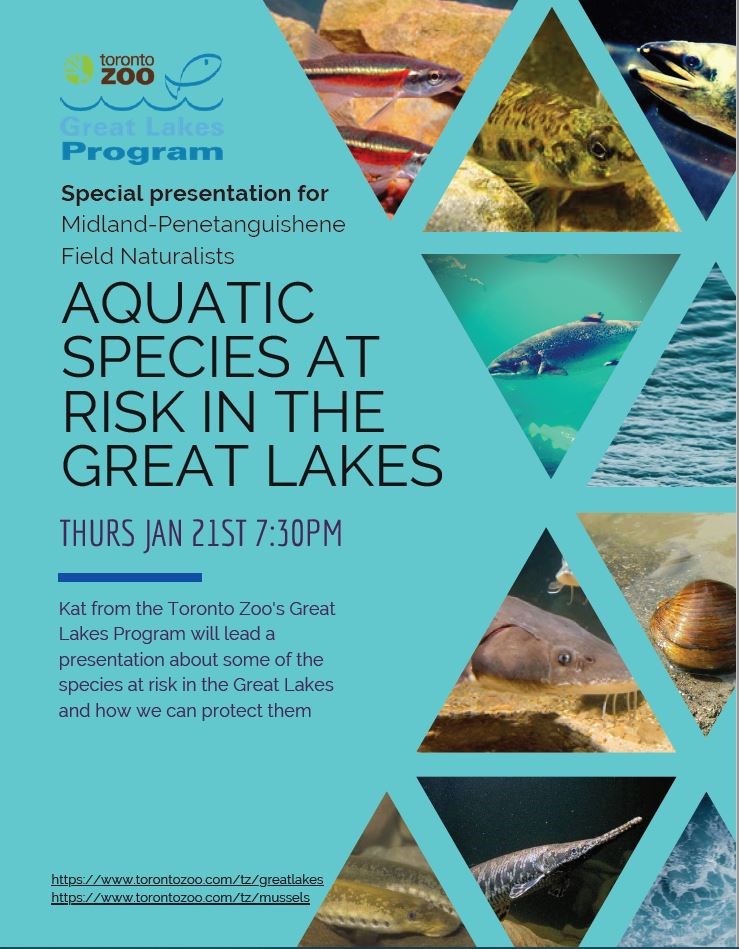Fresh off a successful Christmas bird count, the Midland-Penetanguishene Field Naturalists will now turn their attention to Georgian Bay.
Thursday evening, the club welcomes guest speaker Kat Lucas, a Toronto Zoo Aqua-Links program assistant, who will deliver a virtual presentation on aquatic species at risk in the Great Lakes.
Back in December, the club completed another successful bird count, albeit with social-distancing between members.
The annual Audubon Christmas Bird Count is the oldest and largest citizen science program in the world. It provides valuable information on population dynamics and trends for hundreds of North American bird species that are frequently encountered on count day.
Locally, volunteers were divided into 18 areas, which are consistent from year to year,. The areas are all within a 15-mile radius of Wyebridge that serves as the count’s centre and also includes the Wye Marsh and Tiny Marsh.
“There were 36 participants who took part on a day that was overcast in the morning and snowy in the afternoon,” said local count organizer Dave Schandlen.
“We observed 50 different species and over 4,100 individual birds on count day. This count number is the highest since 2013, probably due to milder conditions.”
According to Schandlen, record high counts were established this year for pileated woodpeckers (14), white-throated sparrows (2), northern cardinals (34) and white-breasted nuthatches (66).
“Some interesting sightings included: white-winged crossbills, white-winged scoter, double-crested cormorant, hooded merganser and a brown creeper,” he added.
As for Thursday’s presentation, the club notes that hundreds of plant and animal species call the North American Great Lakes home and humans rely on the lakes as a source of clean water for drinking, fishing and four-season fun.
“Lots of hard work from many dedicated organizations and individuals in Canada and the United States help keep the Great Lakes ecosystem healthy but the lakes are still threatened by pollution, invasive species and climate change,” an advance highlighting the presentation noted.
“With Kat Lucas of the Toronto Zoo Great Lakes Program, we'll take a deep dive to see what's going on in our beautiful Great Lakes. We'll get to know some of the amazing aquatic species living right here in the watersheds of the Great Lakes and how we can get involved to help protect these locally endangered fishes and molluscs.”
The Midland Penetanguishene Field Naturalists (MPFN), meanwhile, is one of the oldest affiliates of the Federation of Ontario Naturalists. The objective of the club is to promote public awareness of natural history, conservation and the environment. They have meetings once a month, normally at the Wye Marsh Wildlife Centres, and plan a number of outings throughout the year.
For more information about the club and/or Thursday’s meeting, email the club at [email protected].



